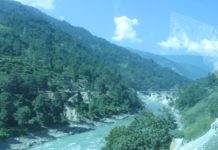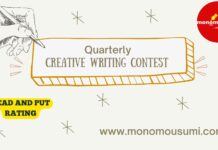A book that changed my life
I read Khaled Hosseini’s “And the mountains echoed” when i was about 18, it was my mother’s gift to me for my birthday. It has been a great influence on me and very decisive in shaping my mind of what love is and isn’t. The theme of the book is about two siblings Abdullah and Pari, that get separated because Pari gets adopted into a wealthy family due to poverty and how they find their way to each other eventually. It questions us with moral equations like, To what length parents go to protect their children from suffering?
Is being torn away better than living in poverty? This book is a proof for being emotionally resonant. It taught me the power of memories and imagination. I was awestruck by the author’s ability to maneuver between the imaginative territory of love and war. I fell in love with the streets of rural Afghanistan. Behind each character’s shadow, there is a beautifully woven story. I was weeping appreciably as I was reading through each page imagining my own familial love.
It shows humans have both good and bad to them, that they are imperfect creatures seeking little shade in their monochrome life. It is sad to read through Pari and Abdullah’s separation, Massoma’s and Parwana’s tragedy, Sulaiman’s last breath and so on. Characters like Nibu, Idris each show tragedy, heartbreak, sacrifice and compassion. The power of writing is so great in the book, it took me into the characters world. I felt like spending more time in their homes and with them.
Interlinking so many characters would have been so complicated, but the author’s simple yet captivating writing just brings it all together perfectly. An emotional connection is created with each character and I felt like I could relate to them or I could relate someone i know personally to them. This story basically tells no matter how different cultures are, humans are all same when it comes to emotions.
War and presence of it is played out well in the book, but the author also reminded me that it is never about war and that human struggle is always above it. The troubling experience of having to flee home just because of war is also portrayed. The life paths of the siblings are so different and in ways it shows the unfairness and fairness in the world. Both of them have their set of struggles growing up and having their own families. I was constantly thinking to myself if memory was a curse or a blessing. As Pari grows up she always feels an absence which makes her heart sad.
Abdullah longs for his sister his whole life so much that he gives the same name to his daughter. The need for answers and their reunion is a continual theme of the book. The author shows how humans use tools in order to strengthen their fallible memory, like how Abdullah collects a yellow feather after his separation from Pari knowing she loves collecting them in the hope that he can give it to her later. In a sense, he keeps it to remember her.
Decades later even though he suffers from Alzheimer’s disease, barely remembering his own name sometimes, he still keeps the feather which is a proof that love is stronger than any memory. It is both heartwarming and heartbreaking to see how Pari finds Abdullah and he realizes who she is once she sings him their lullaby but only for a brief time. The ending is not the usual ending of everything coming together but instead a trigger for memory. As I closed the story, I realized the mountains did echo of the voices that struggled to be heard and the pure love waiting to be reconnected.
By: Manasa Jandhyala
Write and Win: Participate in Creative writing Contest & International Essay Contest and win fabulous prizes.















